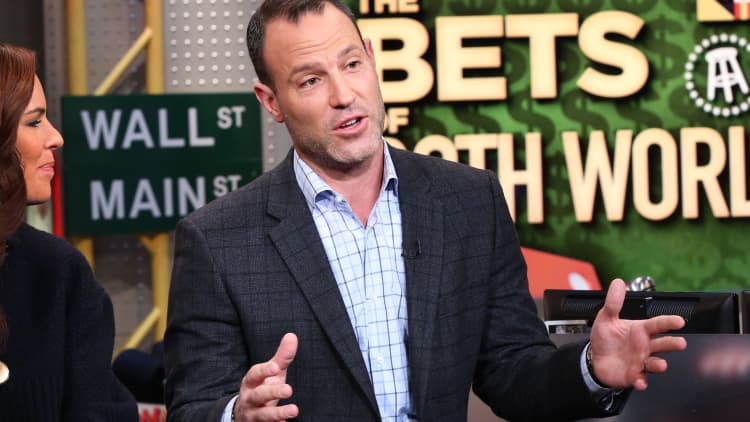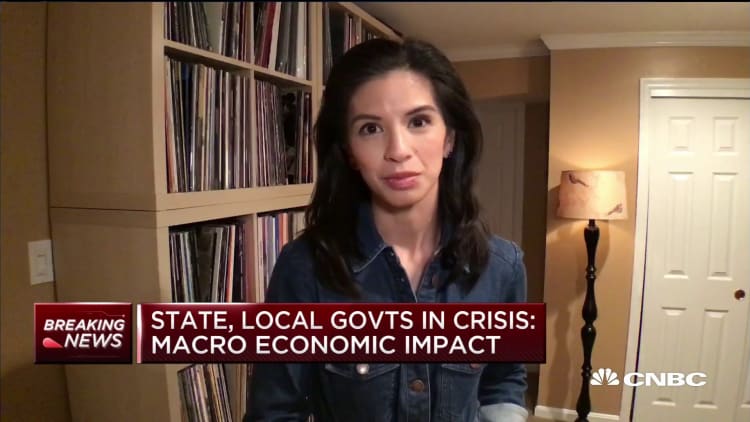
The economic consequences of the coronavirus could speed up sports betting legalization, Penn National Gaming CEO Jay Snowden told CNBC on Thursday.
"We think that this legalization process that is happening at the state level stands to accelerate, and we really think we'll benefit from that because we operate in more states than any gaming company in the world," he said on "Power Lunch."
States across the U.S. are facing significant revenue shortfalls as lockdown orders, meant to slow the spread of Covid-19, sharply reduce both income taxes and sales taxes. Revenues "have fallen off a table" due to the coronavirus, New Jersey Gov. Phil Murphy told CNBC last month.
California projects a budget shortfall of $54.3 billion because of the coronavirus, while states such as Colorado, Ohio and Wisconsin have already announced immediate spending cuts to overcome lost revenue.
DraftKings CEO Jason Robins told CNBC last month that he believes state officials were rightfully focusing their time on how to immediately respond to the public health crisis. But like Snowden, he suggested there "could be more openness" to legalizing sports betting down the road.
"I think once the pandemic is under control, and maybe some of the economic impacts that result from it become problematic for state budgets, you could see more focus on things that will generate tax revenues," Robins said. "That's not now. There's a time and place for that later, but I do think there might be an opportunity to engage with states that previously have been on the fence about passing legislation."
The Supreme Court struck down a federal law in May 2018 that effectively made sports betting illegal in most states. Since the ruling, the number of states that have legalized it has risen to 23, according to the American Gaming Association. As of April 30, 16 states have active legislation that could legalize it.
Revenues from sports betting likely would not make up significant shares of state budgets due to the way the tax is structured. However, some proponents argue it is better to legalize it and collect some revenue than none at all.
The temporary pause on major U.S. sports leagues has also had an impact on the amount of sports betting and, by extension, the revenues states generate from it. Penn National Gaming has seen a "significant" impact, Snowden said, as "there really is no sports betting business to be had right now with no live sports."
The casino operator reported quarterly earnings before the bell Thursday and posted $1.12 billion in revenues, a decline of $166.5 million compared with the same period last year.
It posted a net loss of $608.6 million in the quarter, as the impact of the coronavirus on its business intensified and all 41 of its properties were temporarily shuttered.
But shares of Penn National Gaming surged more than 15% on Thursday to $18.18 each. Penn National's stock was boosted, as were other casino names, after the Nevada Gaming Commission approved new guidelines to reopen casinos in the state. Shares of Penn National are down 28.87% for the year.



